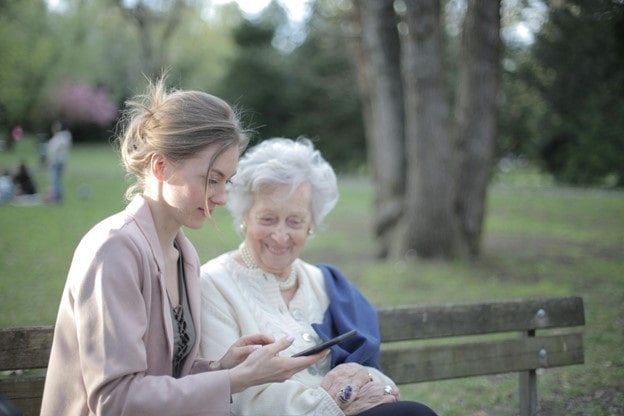
Photo via Pexels
Embarking on the journey of caregiving is a path marked by compassion, dedication, and immense responsibility. It’s a role that, while rewarding, can often be overwhelming, making the need for effective self-care strategies not just beneficial, but essential. This comprehensive guide, courtesy of Care Provider Solutions, aims to offer valuable insights and practical approaches to help new caregivers maintain a healthy balance between their caregiving responsibilities at an assisted living facility, senior care or adult foster care home and personal well-being. It’s about nurturing yourself as you care for others, ensuring that you remain resilient, focused, and emotionally sound.
One of the first and most crucial steps for new caregivers is to establish clear and firm boundaries. This means setting definitive limits on how much time and emotional energy you can devote to caregiving without compromising your own well-being. It’s essential to recognize that saying ‘no’ or setting limits does not equate to failure or lack of care; rather, it’s a necessary step to prevent burnout and to sustain the ability to provide high-quality care. Establishing these boundaries early on helps in creating a healthy separation between your personal life and caregiving duties, allowing you to recharge and return to your adult foster home provider role with renewed energy and perspective.
Caregiving is a task that often requires continuous attention and energy, which is why it is vital to incorporate short, regular breaks into your routine. These breaks are not just pauses; they are essential periods of rejuvenation. Whether it’s stepping outside for fresh air, enjoying a cup of tea, or simply sitting in silence, these moments help to reset your mind and alleviate stress. They provide an opportunity to step back, reflect, and gather strength, ensuring that you are better equipped to handle the challenges of caregiving as a licensed adult foster home provider with a clear and calm mindset.
It’s a common misconception that becoming a caregiver means putting your personal aspirations on hold, but with the rise of flexible online education and remote work opportunities, it’s now more feasible to pursue career or educational goals such as residential care facilities management or opening and operating adult foster care homes. Engaging in online courses or professional development can be fulfilling, enhancing your sense of self and bringing new skills to your caregiving role. This is a good potential option, as balancing caregiving with personal growth is not only challenging but also enriches your life with added depth and diversity.
In the realm of self-care, the practice of mindful breathing stands out for its simplicity and effectiveness. Deep breathing exercises are a powerful tool for managing stress and anxiety, offering a quick and accessible way to center yourself in moments of overwhelm. These techniques can transform your approach to challenging situations, allowing you to respond with calmness and clarity. Integrating mindful breathing into your daily routine can significantly enhance your mental and emotional resilience, benefiting both you and those you care for.
An often overlooked aspect of self-care is the simple act of staying hydrated. Regular water intake is vital for maintaining energy levels, cognitive function, and overall physical health. As a caregiver, your days may be long and physically demanding, making it all the more important to ensure you’re well-hydrated. This seemingly small habit can have a profound impact on your ability to provide care, helping you stay alert, focused, and physically capable.
Finally, an essential aspect of self-care is recognizing when and how to seek support. Caregiving, by its nature, can be isolating, but it’s important to remember that you’re not alone. Whether it’s turning to family and friends for emotional support or engaging with caregiver support groups for advice and empathy, reaching out is a sign of strength. It’s an acknowledgment that caring for others is a shared human experience, one that benefits from the collective wisdom and support of a community.
The journey of caregiving, while challenging, offers an opportunity for immense personal growth and fulfillment. By establishing clear boundaries, taking regular breaks, pursuing personal growth, practicing mindful breathing, staying hydrated, and seeking support, caregivers can effectively navigate the complexities of their role. These strategies not only enhance the quality of care provided but also ensure the caregiver’s own health and well-being are preserved. Remember, in the art of caregiving, taking care of yourself is just as important as taking care of others.
Do you own a care-based business? Care Provider Solutions, an adult foster care system specialist offers adult foster care home business consulting and an array of helpful resources. Get in touch today to learn more.
Our free resources vault contains downloads and tips to help you reduce operating stress and increase profitability.
Copyright 2025 Care Provider Solutions. Website by MN Design